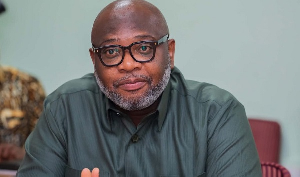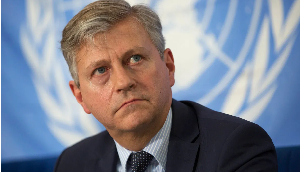Prof Philip Ebow Bondzi-Simpson, a Professor of Law at the University of Cape Coast, has suggested the creation of traditional districts to enable chiefs to effectively participate in the local governance system.
He said the traditional districts shall be presented as the natural socio-cultural realm for community -level democratic governance to be centered around.
Prof Bondzi-Simpson said this during his inaugural lecture on the topic “Towards Jurisdictional Conference: A new Paradigm for Community level governance” in Cape Coast.
He said the functional and spatial dimension of the jurisdiction of the proposed tradition district shall include the traditional district as a corporate body to assume the present local government systems.
Paramount chiefs would act as not only ceremonial or titular heads but also allowed to nominate representatives to the statutory planning committees responsible for settlement planning.
Prof Bondzi-Simpson said the presiding member of the traditional district would act as head and the Odikro or village chief as the head prefect or agent of MMDCEs in their communities.
It should have popularly elected assembly members, four stool/skin representatives and six government nominees.
According to him, the Paramount chief of the district should hold periodic or quarterly meetings with other chiefs and district chief executive and presiding member and ensure annual publication by each division.
He said though there were 279 traditional areas, 275 members of Parliament and 216 district assemblies, community level governance was not working since the issues of community level governance were not being addressed.
Prof Bondzi-Simpson attributed the situation to the neglect of the chieftaincy institution in the local government system, adding that in most cases issues concerning development projects were not discussed with chiefs before they are implemented.
He said in the pre-colonial era, chiefs were actively involved in the governance system through the indirect rule but now the chieftaincy institution was adorned and decorated but has diminished roles, functions and powers.
Prof Kuupole commended Prof Bondzi-Simpson for his efforts and was hopeful that he would bring to bear his knowledge and expertise in the newly created faculty of Law of the UCC.
Regional News of Monday, 8 December 2014
Source: GNA












